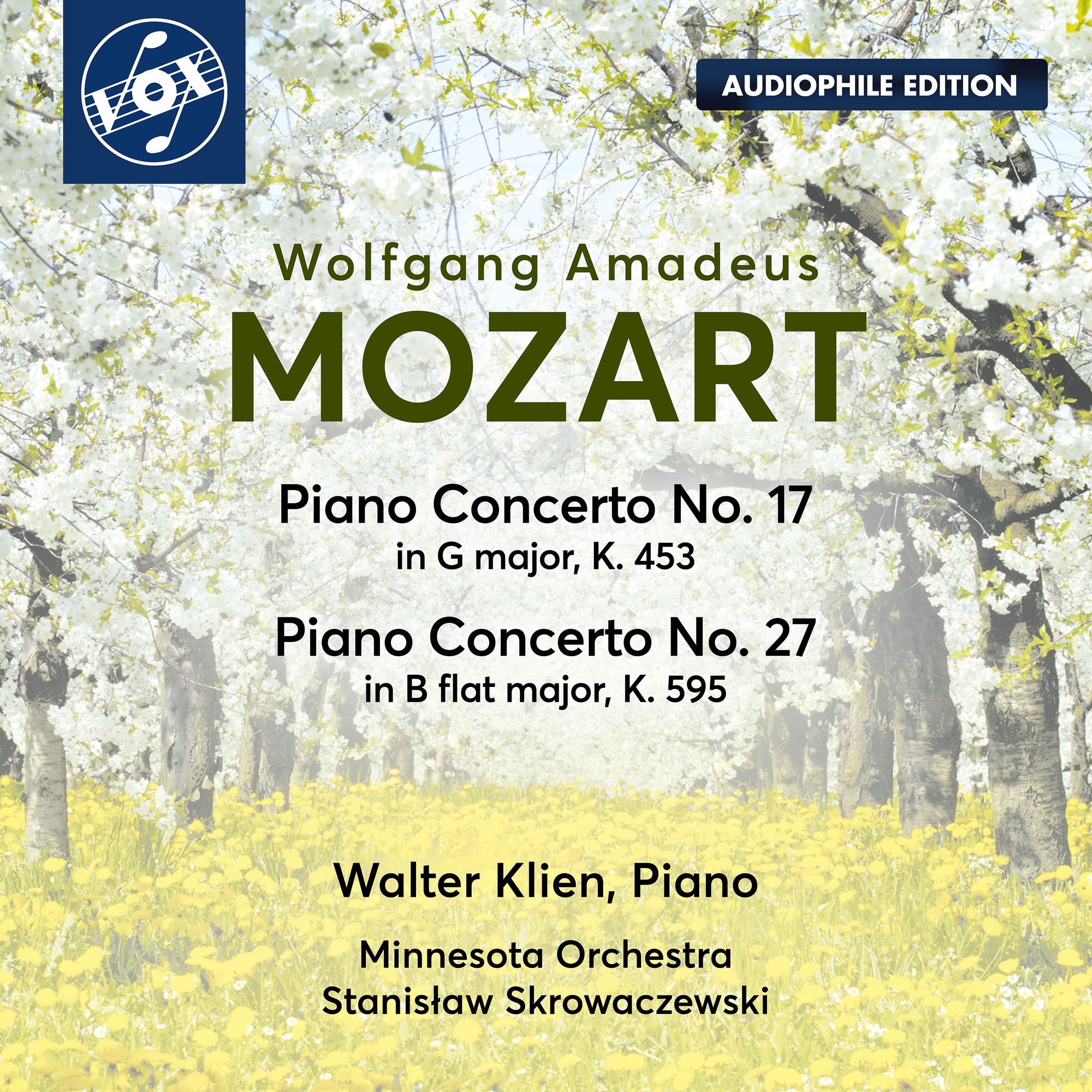Mozart from Minnesota: Walter Klien & Stanslaw Skrowaczewski
This is a triumph of restoration, and the music chosen could hardly be heard in finer performances

This is a very significant re-release.
Here we have the meeting of two greats - and while the names of both soloist and onductor are surely familiar to many, neither has fully achieved the recognition they deserve. Walter Klien (1928-1991): pronounced "clean") made a stack of recording for Turnabout (later Vox); the long-lived Stanislaw Skrowaczewski (1923-2017) was a conductor and composer. At 13 he played and conducted Beethoven’s Third Piano Concerto with the Lviv Philharmnoic Orchestra (1940). Unfortunately a hand injury curtailed his keyboard activities: UK readers will know him from his time with the Hallé (some unforgettable performances, including - ones I attended in Manchester’s Free Trade Hall - a Stravinsky Petrushka, Ives and Mahler Tenth Symphony in the Cooke completion). Skrowaczewski was Music Direcor of the Minnesota Orchestra frpom 1960 to 1979
Piano Concerto No. 17 of 1784 is in the bright key of G-Major, and how we hear that sense of joy in Skrowaczewski's handling of the orchestral exposition. Alfred Einstein, in his Mozart: His Character, His Work, referred to the "almist Schubertian abundance of meldic invention. in tthr tutti ritornello in ... K 453" (1978 Third Edition, p. 162) This recording was issued in 1978, but the sound is really well managed. The original mastertapes were put down by Elite Recordings (Marc Aubort and Joanna Nickrenz); Aubort's technique was to use a maximum of three (and usually only two) microphones; he as also an early adopter of Dolby noice reduction. He started Elite Recordings in 1969 after working for the US label, Vanguard. He invited the concert pianist Joanna Nickrenz to join him, later becoming both producer and editor (and full partner). It was they who recorded many top-rank orchestras for Vox in the 1960s and 1970s
Klien's touch and articulation are pearly-clean, and that life we hear in the exposition is continued throughout by Skrowaczewski. Listen, too, just ater eight minutes in, how Klien imitated horn calls on the piano perfectly, and how his semiquavers after are so lquid and yet so perfectly articulated. If ever anyone thought that pre-HIP (Historically-Informed Performance) recordings could not capture the spirit of Mozart, let them listen to this:
Klien’s performance of Mozart’s cadenza is phenomenal (only Pollini, live with the ECO in a performance preserved in aspci in my memory tops it).
The Andante is, as one might imagine, slower than one moght construe a Mozart Andante nowadays. It is supremely disciplined, though, and how the woodwind solos shine, beginning with the terrific Minnesotan oboe. There is such detail to the orchestra (listen to the string part-writing just before the piano’s first entry. Klien. Einstein refers to the “passionate tenderness“ of this movement, and how one hears that in this performance:
The finale is astonishing in Klien’s left-hand agility and clarity throughout. He hardly touches the sustaining pedal, and yet nothing is dry - the basis of a wonderful legato touch underlying everything. And the transfer allows us to hear absolutely everything:
That rhythmically tricksy bit just before the coda is supremely manaded y Klien and Skrowaczewski - and how appealing is Klien’s little flourish immediately prior to the final assages. That coda is wonderfully vital.
On to Mozart’s last concerto now. No. 27 in B flat, K 595 (1791), a performance of serenity, yes, but there’s life there, too. Many a pinist will take joy in the sheer accuracy of Klien’s articulation, his perfectly judged staccato, the evenness of his left-hand Alberti basses. The list of his strengths goes on and on ... and how cheeky the Minnesota violins’ acciaccaturas:
Klien’s cadenza (Mozart) is one of the finest accounts; only Brendel (Academy of St Martin-in-the-Fields / Neville Marriner) equals it. After that, the simplicity of the opening of the Larghetto. But of course, Mozart is never smple, it’s an illusion, as Klien understands so well:
The finale exudes that late-Mozart sense of serenity. Lucky the aspiring pianist who holds in awe and learns to imitate Klien’s clarity and finger-strength in this movement. Aove and beyond that, this is a performance that like few others projects the joy of profound peace:
Comparing and contrasting approaches between this and Maxim Emelyanychev and Il Pomo d’Oro in another Mozart concerto, the later of the two in A-Major (K 488; there’s an earlier one also, K 414) in a recent post is instructive; personally I would argue both get to the heart of Mozart, just coming at it from dfferent angles ...
And as for the sound on this new Vox release, I for one ceertainly don’t remember Vox/Turnabout LPs sounding anything like as good as this on my old turntable. The new 192 kHz / 24-bit ultra high definition trasncriptions of the original Elite recordings analogue master tapes are impeccable - harshness is reduced to an absolute minumum. This is a triumph of restoration, and the music chosen could hardly be heard in finer performances. I am proud to have this disc next to Uchida, Brendel et al on my shelves.
